 I think all of us “Christians” should stop referring to ourselves as “Christians.”
I think all of us “Christians” should stop referring to ourselves as “Christians.”
Nor should we ask other people if they are a “Christian.”
I have two lines of reasoning for why we should stop saying we’re Christians.
1. They were first called Christians in Antioch (Acts 11:26)
When the term “Christian” was first invented, it was coined by an outside group of “pagans” who observed the way Jesus-followers behaved and recognized the similarity between what they were doing and what Jesus did. And so they called these Jesus followers “Christians.”
In other words, the first “Christians” did not take this title for themselves; it was given to them.
The term means “little Christ,” and while some scholars think that it was maybe intended to be a derogatory term (sort of like Yankee Doodle), I do not think so. I think the people of Antioch noticed how “Christ-like” the people were who claimed to follow Him, and so they started to referring to this Christ-like followers of Jesus as “Christians.” It was a way to identify them and talk about them.
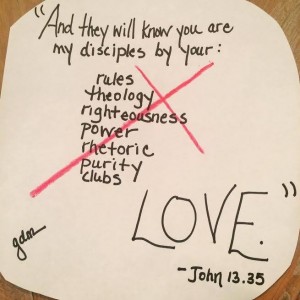 The Christians of Antioch were not known for their hate, venom, judgmentalism, or religious pride, or even for their good theology, pious life, and vast Bible knowledge. Instead, They were knowing for looking and acting and behaving like Jesus Christ, and as a result, they were “called Christians” by those who were not Christians.
The Christians of Antioch were not known for their hate, venom, judgmentalism, or religious pride, or even for their good theology, pious life, and vast Bible knowledge. Instead, They were knowing for looking and acting and behaving like Jesus Christ, and as a result, they were “called Christians” by those who were not Christians.
If the watching world started giving titles and nicknames to those who proclaim to follow Jesus today, what sort of titles do you think they would give us?
I am not sure I want to know … but I doubt it would be “Christian.”
But this leads me to the second line of reasoning for why we should stop calling ourselves “Christians.”
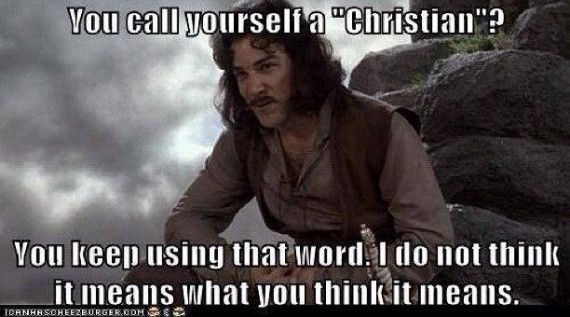
2. They will know you are Christians by your love (John 13:35)
If you truly are a “Christian” you don’t have to tell people. They will know it. How? By your love.
Those who truly act like a “Christian” do not have to tell people they are a “Christian” because people already know it. They know it by your love.
 I walked by two guys in the store the other day who were both wearing Christian t-shirts. One was saying to the other, “Yeah, they all hate me at work, but that’s okay, because I’m standing up for Christ.”
I walked by two guys in the store the other day who were both wearing Christian t-shirts. One was saying to the other, “Yeah, they all hate me at work, but that’s okay, because I’m standing up for Christ.”
Now, I cannot say for sure, but I imagine that since I heard this about five days after the United States Supreme Court ruled in favor of gay marriage, that this man’s idea of “standing up for Christ” consisted of telling his coworkers that LGBT people were headed for hell, were destroying our country, and were signs of the collapse of modern society and traditional marriage.
Some religious people think that “standing up for Christ” in today’s culture means telling others that God hates gays. Just check out some of the comments on my post from two days ago.
Look, I don’t know where you stand on the gay marriage issue. I don’t care. What I do know, however, is that wherever you stand on gay marriage, the proper response to gay people is love.
The same goes for other groups of people some Christians love to hate. Like Muslims. Whatever you may think about the Muslim religion, the proper way to treat a Muslim is with love.
Love is the proper (and only) response to ALL people, no matter what they believe or do, if we are followers of Jesus.
If you want to represent Jesus to people, don’t do it by hating or condemning them. (And don’t use the line about how you “Love the sinner, but hate the sin.”)
Anyway, back to the conversation I heard in the store, I wanted to tell this guy who was proud of his “stand for Christ” that just because people hate you for what you say doesn’t mean that you are standing for Christ.
In fact, in the Gospels, the only people who really hated Jesus were the religious people. Those who were condemned and judged by the religious people loved Jesus and hung out with Him and were accepted by Him.
So if the world hates you but religious people love you, you might not be following Jesus.
Also, if, like this guy in the store, you have to tell people you are a Christian by broadcasting it on your t-shirt, you’re doing it wrong.
If we want to tell people we are followers of Jesus, we do it by loving them. Just as He loves us. Unconditionally. That’s what Godly love is.
I am convinced that the person who loves others unconditionally but doesn’t claim to follow Jesus is closer to the Kingdom of God than those who claim to follow Jesus but doesn’t love others unconditionally.
 If love is of God, and everybody who loves is born of God and knows God because God is love (1 John 4:7-8), then it only makes sense that love will be the prevailing characteristic of one who is born of God and know God!
If love is of God, and everybody who loves is born of God and knows God because God is love (1 John 4:7-8), then it only makes sense that love will be the prevailing characteristic of one who is born of God and know God!
It is not a person’s words that make him or her a Christian, or what they post on Facebook or wear on their t-shirts, or even how many Bible verses they can quote, or how often they attend church and Bible studies, or whether they can “take a stand for Christ.”
They will know we are Christians by our love, and if you have not love, they will never know you are a Christian, no matter how much you tell them you are.
Or maybe I should put it this way: If you have not love, you can never properly act like a Christian, no matter how much you tell people you are one.
The REAL Question We Should be Asking Ourselves (and others)
So the question we should be asking is not “Am I a Christian?” but rather, “Am I Christ-like?”
“Do my words sound like words Jesus might say?”
“Do my actions look like things Jesus might do?”
“Do I love unconditionally, forgive freely, serve sacrificially, and accept all?”
“Do I challenge the religious status-quo for setting up barriers to God and creating groups of us vs. them?”
“Do I break down the walls of religion by eating with the so-called ‘tax-collectors and sinners’?”
If so, then keep living in love and looking like Jesus, and maybe, just maybe, someone might call you a “Christian.”




 It is common in Christian circles to hear admonitions to “Love the Sinner; hate the sin.”
It is common in Christian circles to hear admonitions to “Love the Sinner; hate the sin.” 
 The simple fact that we label the person we are talking about as a “sinner” indicates that we do not have love for them in the first place.
The simple fact that we label the person we are talking about as a “sinner” indicates that we do not have love for them in the first place.  When a watching world says Christians are full of hate, it is not a good strategy to tell them that we don’t hate them we just hate their sin.
When a watching world says Christians are full of hate, it is not a good strategy to tell them that we don’t hate them we just hate their sin. 
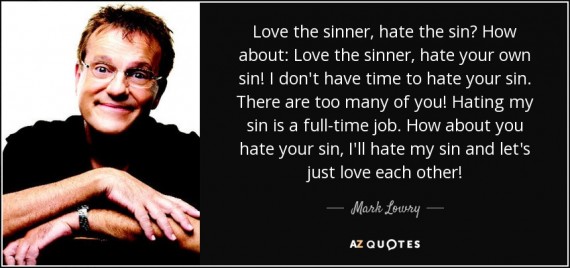
 When we say, “Love the sinner; hate the sin,” what we are really saying is “I will love only those I want to love, and I will hate and despise and cast out those people who do things I have decided are worse than the things I myself do, and this way I can make myself feel better while I condemn them for all the problems that I myself have contributed to but don’t want to admit.”
When we say, “Love the sinner; hate the sin,” what we are really saying is “I will love only those I want to love, and I will hate and despise and cast out those people who do things I have decided are worse than the things I myself do, and this way I can make myself feel better while I condemn them for all the problems that I myself have contributed to but don’t want to admit.”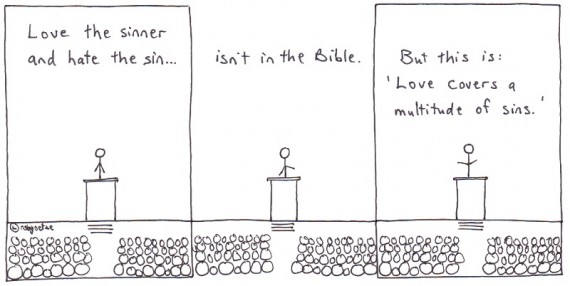
 And why can’t that be enough? When we see someone else behaving in ways we don’t approve of and which we think is sin (and as long as it’s not illegal or harming someone), why can’t “love” be the only word that comes to our mind?
And why can’t that be enough? When we see someone else behaving in ways we don’t approve of and which we think is sin (and as long as it’s not illegal or harming someone), why can’t “love” be the only word that comes to our mind? 

 There are all sorts of ways of getting condemned as a heretic.
There are all sorts of ways of getting condemned as a heretic.
 But what makes the lack of love even more heretical, is that a lack of love often leads religious people to do horrendous and hurtful things “in the name of Jesus,” which makes these actions not just heretical, but satanic and evil.
But what makes the lack of love even more heretical, is that a lack of love often leads religious people to do horrendous and hurtful things “in the name of Jesus,” which makes these actions not just heretical, but satanic and evil.
 These keys are summarized by some quotes I heard from somewhere … (I cannot recall where or from whom … sorry).
These keys are summarized by some quotes I heard from somewhere … (I cannot recall where or from whom … sorry).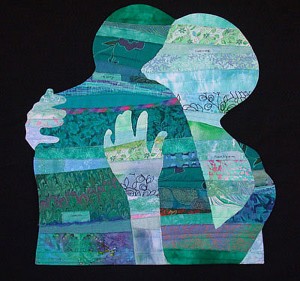 I think I might have heard this from
I think I might have heard this from 